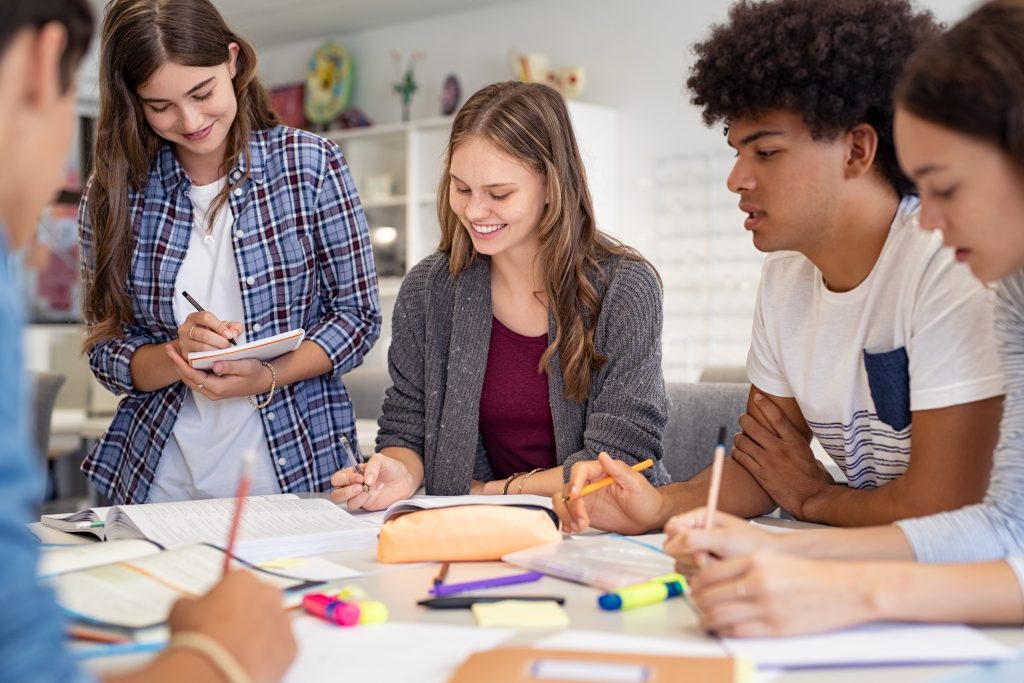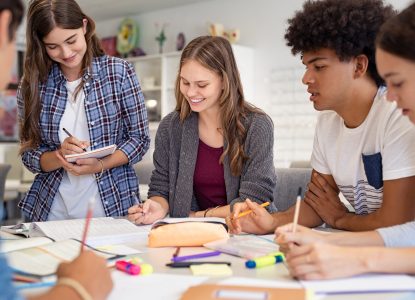By Dr. Scherto Gill – Co-Chair, G20 Interfaith Forum Working Group on Education
– – –
If there is one phenomenon unfolding during the COVID-19 pandemic more strikingly and more pressingly than others, it must be the pandemic of “illbeing” or poor mental health amongst adolescents and young people. Here are WHO’s statistics[i]:
- Globally, depression is one of the leading causes of illness and disability among adolescents.
- One in six people with mental health conditions are aged 10-19 years.
- Mental health conditions account for 16% of the global burden of disease and injury in people aged 10-19 years.
- Half of all mental health conditions start by 14 years of age, but most cases are undetected and untreated.
- Suicide is the fourth leading cause of death in 15-19-year-olds.

A Global Listening Initiative
Many international organisations such as UNESCO and UNICEF have highlighted the imperative of respecting young people’s perspectives, engaging them in educational decision-making, and regarding them as partners for educational transformation. To this end, and in response to the G20 Interfaith Forum (IF20) Association’s call for ‘A Time to Heal’, the IF20 Education Working Group partners launched a Global Listening Initiative, inviting adolescents from across five continents to participate in experiential workshops designed to provide safe and caring spaces for deep silence-listening-dialogue. The global partners and collaborators who have supported the initiative and hosted workshops include:
- Arigatou International
- Adyan Foundation
- Brahma Kumaris World Spiritual University
- Dream a Dream India
- DofE (The Duke of Edinburgh’s International Award)
- Global Network of Religions for Children (GNRC)
- GHFP (Guerrand-Hermès Foundation for Peace) Research Institute
- KAICIID International Dialogue Centre
- Scholas Occurentes
- SoH (Spirit of Humanity) Forum
- States of Mind
- WOSM (The World Organization of the Scout Movement)
- WAGGGS (The World Association of Girl Guides and Girl Scouts)
The adults facilitating the listening groups encouraged adolescents to (a) reflect on and explore with one another their experiences of life and education during the COVID-19 pandemic; (b) share and identify who and what has been most supportive to their learning and well-being at this time; (c) consider together and propose key priorities for educational transformation towards well-being in their contexts.
The Impact of the Pandemic
In sharing their experiences of the pandemic, participating adolescents shared many similar stories, particularly with regard to the physical, psychological, and educational implications of lockdowns, the reduced opportunities to learn and to connect with peers and teachers, and general mental illbeing, emotional upheaval and sadness and grief for those who have suffered from losses.
Many young people have struggled with the effects of the emotional and financial strain other family members are undergoing. Some have felt disconnected and lonely, and others have been burdened with additional chores. Another common challenge experienced by many adolescents was the lack of computers/mobile phone availability and good internet access/speed for communicating and online learning; and for those in poorer countries, lack of electricity.
Despite these challenges, young people also identified positive effects of educational disruption, in particular the increased opportunities to connect with family members and to have space and time to think and reflect.
Factors Supporting Wellbeing
Regarding factors and people that supported their wellbeing at this time, our global participants identified some important relational factors that seem to have contributed meaningfully to their wellbeing during this unique time.
Despite various restrictions and limitations, there have been enriched relationships with family and friends. Where possible, sustained contacts and connections with teachers, religious/faith/interfaith and non-formal education groups, and the wider community have been considered particularly helpful for adolescents’ learning and well-being. Some have managed to find spaces for quiet time, for free play and creativity; others described how spiritual practices and connection with nature were meaningful for their personal development.
When the lockdowns eased, adolescents found that opportunities for communal activities to improve the common good, such as volunteering and supporting others’ well-being, particularly meaningful for them. These are seen as, in part, what constitutes their own well-being.
Needless to say, good access to digital media and ICT for connection and for learning, and acquiring new online skills and new forms of communication have supported their learning and well-being.
Proposals for Educational Transformation
When it came to proposals for educational transformation, global adolescents seemed to have reached consensus, across geographic, socio-economic and political contexts; a greater focus on generative relational processes in education is needed.
Under this theme, adolescents proposed a collaborative approach to teaching and learning that listens to and attends to individual needs, encourages independence, and nurtures motivation. They also suggested including holistic care (physical, social-emotional, ethical, and spiritual) in educational ethos, curriculum structure, and pedagogical practices.
Another common theme emerging from the global adolescents’ reflection is the imperative of moving away from the pressure to pass exams and achieve grades, towards formative approaches to educational evaluation that value students’ learning processes and well-being. This shift would allow the curriculum, teaching and learning to enrich young people for the world, including supporting them to embrace the present and future challenges confronting humanity.
In addition, participants also pointed out the need for spaces in curriculums for reflection, quiet time, personal development, creativity, and meaningful relationships. For instance, they talked about including activities in education that can help sustain interconnections between students, with teachers and adult mentors, and with communities beyond the school. On this, they especially asked to integrate environmental education and ecological awareness into all aspects of their education.
Once again, the significance of equality in access to learning resources is stressed, such as online learning spaces, digital technology, computer devices, and good bandwidth. Likewise, adolescents underscored the imperative of building teachers’ capacities to teach through the online and digital media.
Most importantly, the global adolescents demanded that children and young people be regarded and engaged with as dialogue partners in educational transformation, and that their perspectives be integrated in educational policymaking.
Reflection on the Project: Spirit of Humanity Forum
The IF20 Education Working Group partners and collaborators were very impressed by the meaningful insights shared by our worldwide young people. Their thoughtfulness arising from the deep listening spaces and processes was particularly noticeable. At the same time, those who took part in the workshops expressed their excitement at having been part of this global initiative, and found the experience both powerful and empowering. Apart from feeling respected, they shared the joy of being able to listen to each other, share personal stories, and discuss about how education might make a difference to their present and future lives.
This unique global listening initiative caught the attention of Spirit of Humanity (SoH) Forum and its worldwide community. This was in part because the IF20 Edu WG’s approach to engage adolescents was underpinned by the same pillars that the SoH Forum apply to hold spaces for their meetings: silence, listening and dialogue. Therefore, selected adolescents were invited to present this work at the 5th SoH Forum held in Iceland on 3-6 June 2021.
During the Forum, the Icelandic Minister of Children and Social Affairs, Mr Ásmundur Einar Daðason, joined the panel with two young participants from the IF20’s listening groups, Ella Gregory, 18, from the UK, and Karam Jaber, 16, from Lebanon. The Minister and the two adolescents entered into an intense dialogue about the experiences of global young people of today, and how education can be improved to better support their healing and well-being. During their conversation, Minister Daðason suggested that engaging young people in policymaking be a priority for politicians.
Young people are the future but they are also the present, and young people have to be at the table now, to talk about the future…. I encourage other leaders everywhere (because leaders are everywhere, they are in government, in municipalities, in youth organisations, in schools … ) to listen to young people, have a conversation, and do it on an equal basis. Don’t be afraid to have an extra seat at the table for young people. You won’t lose power, you will only govern better.
For more details of Minister Daðason’s dialogue with the young people from IF20’s listening groups, please refer to the recording here: https://www.youtube.com/watch?v=JISvLlfvZ64
– – –
Dr. Scherto Gill is Co-Chair of the IF20 Education Working Group and a Senior Fellow at the GHFP Research Institute, Research Fellow at University of Sussex and University of Wales, and Fellow of the British Royal Society of the Arts. She teaches postgraduate courses and supervises Masters and Doctoral theses. Through research, projects and published work, Scherto actively explores ways to implement ideas such as human-centred education, deep dialogue, ethics of caring, holistic well-being, and positive peace. She leads a UNESCO Programme entitled Transformative Education and Collective Healing, and is the co-founder of Relational Education.


